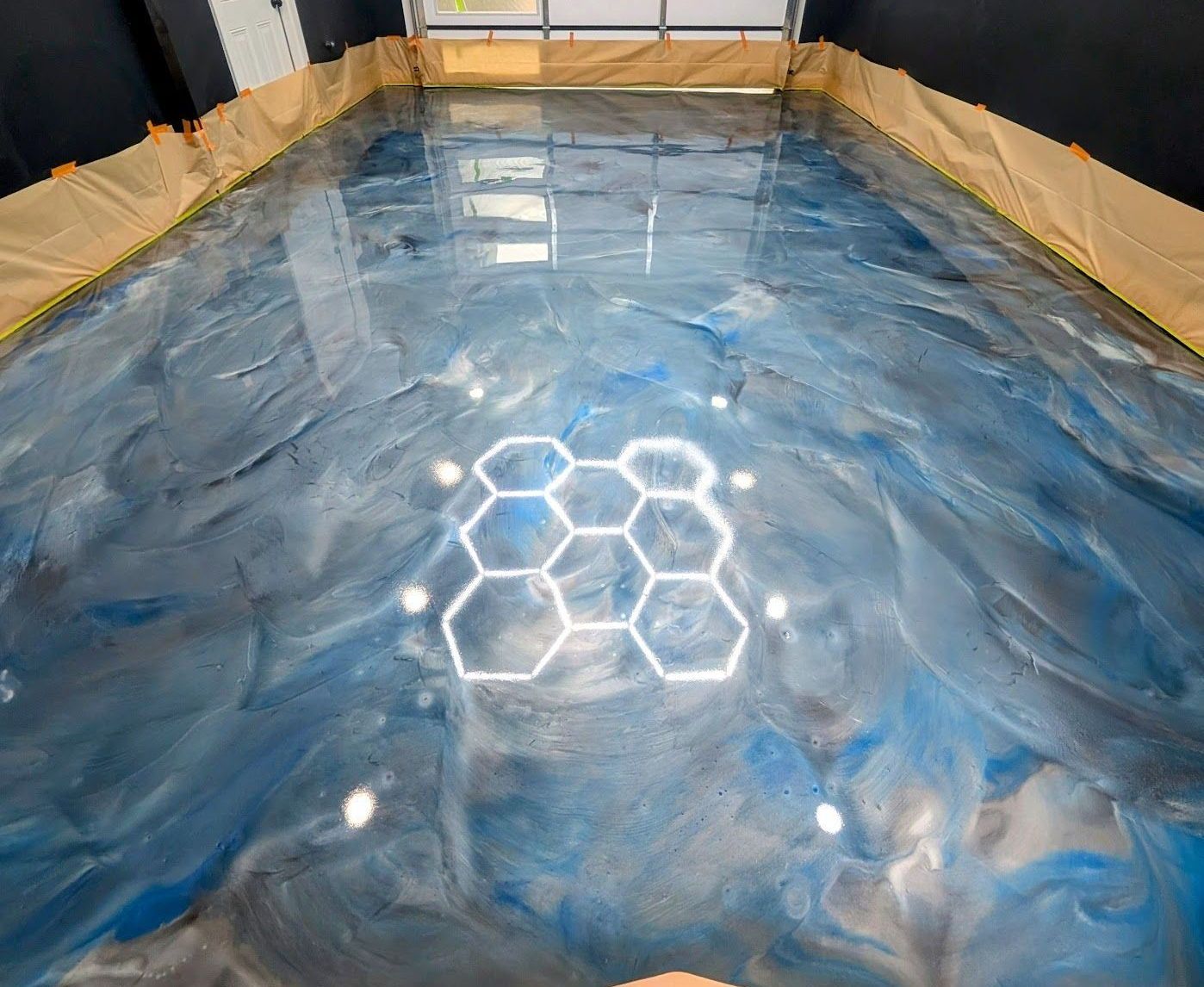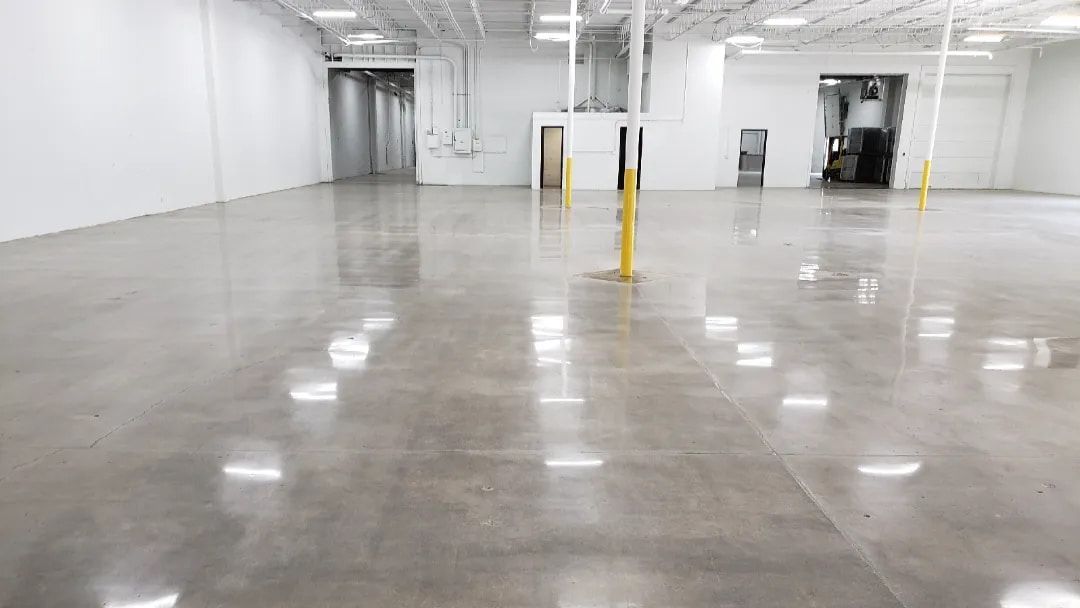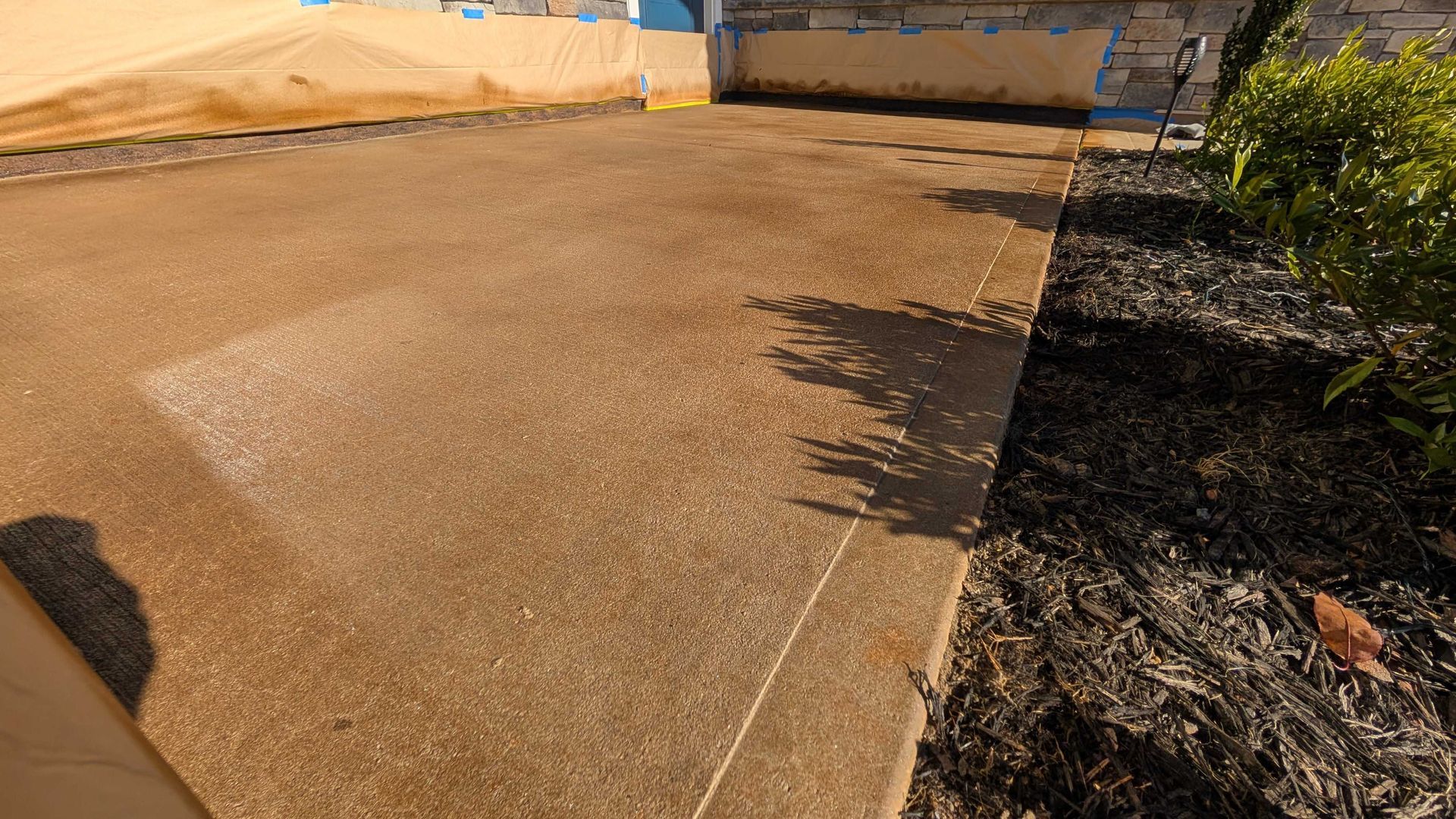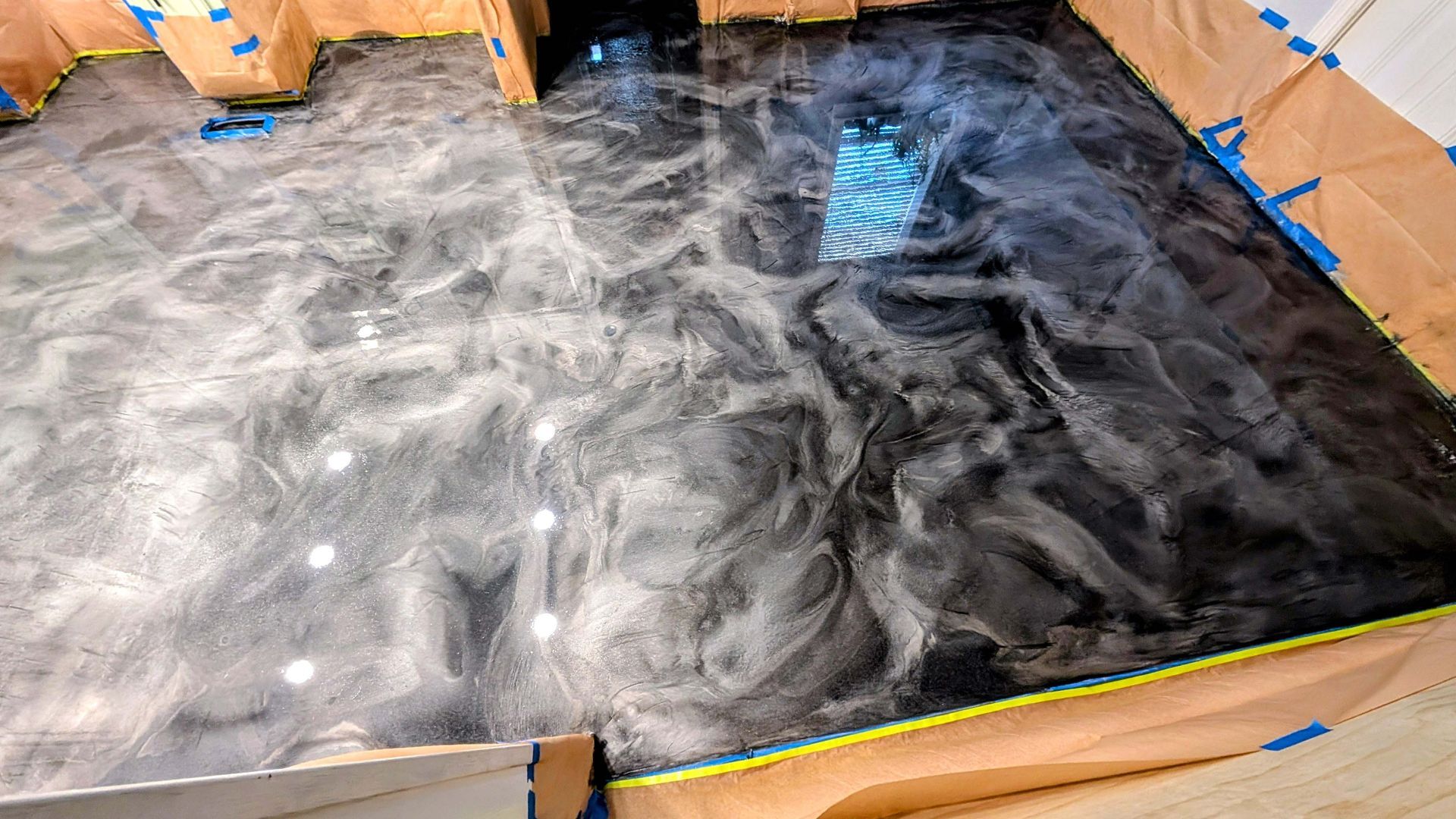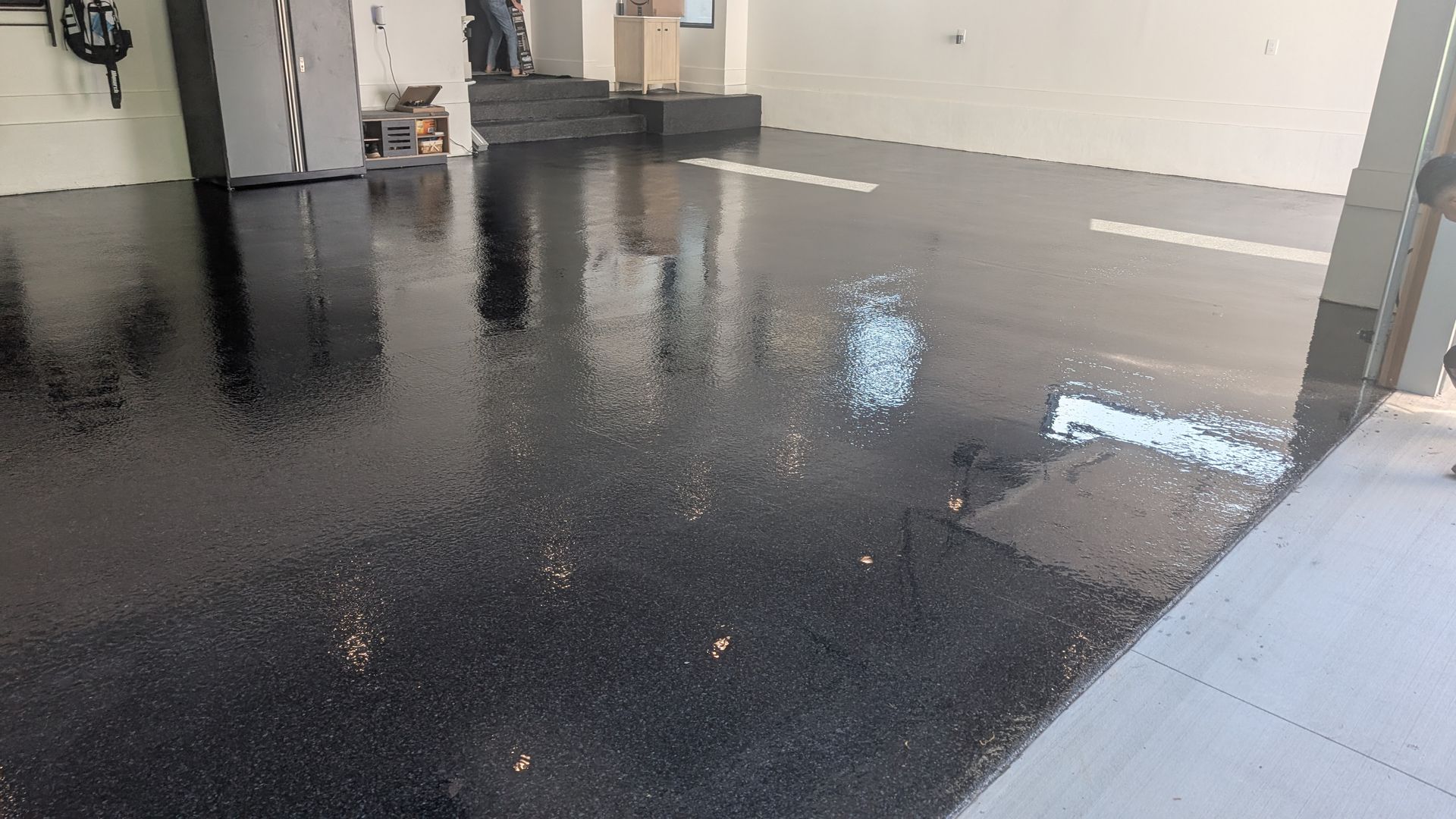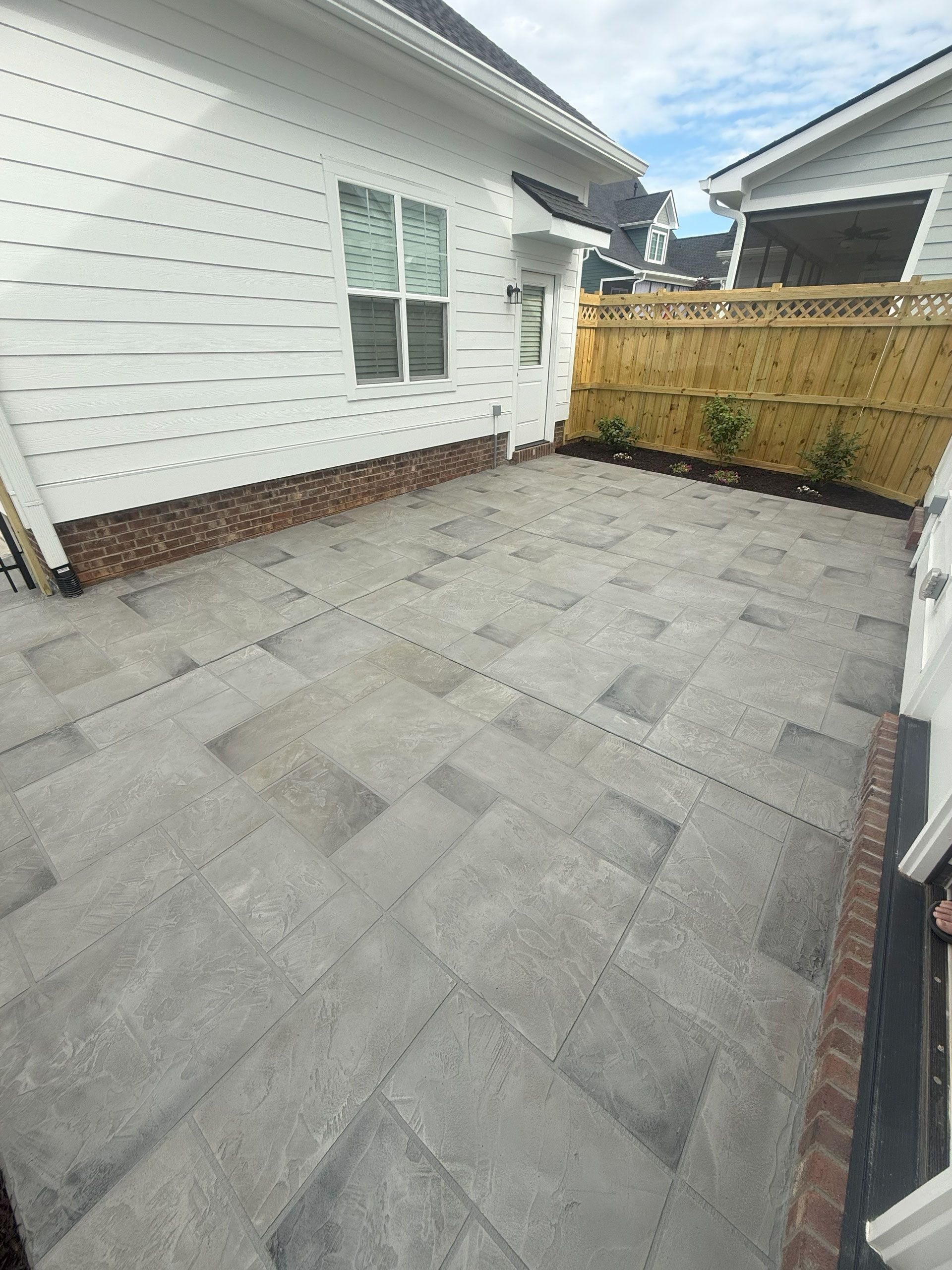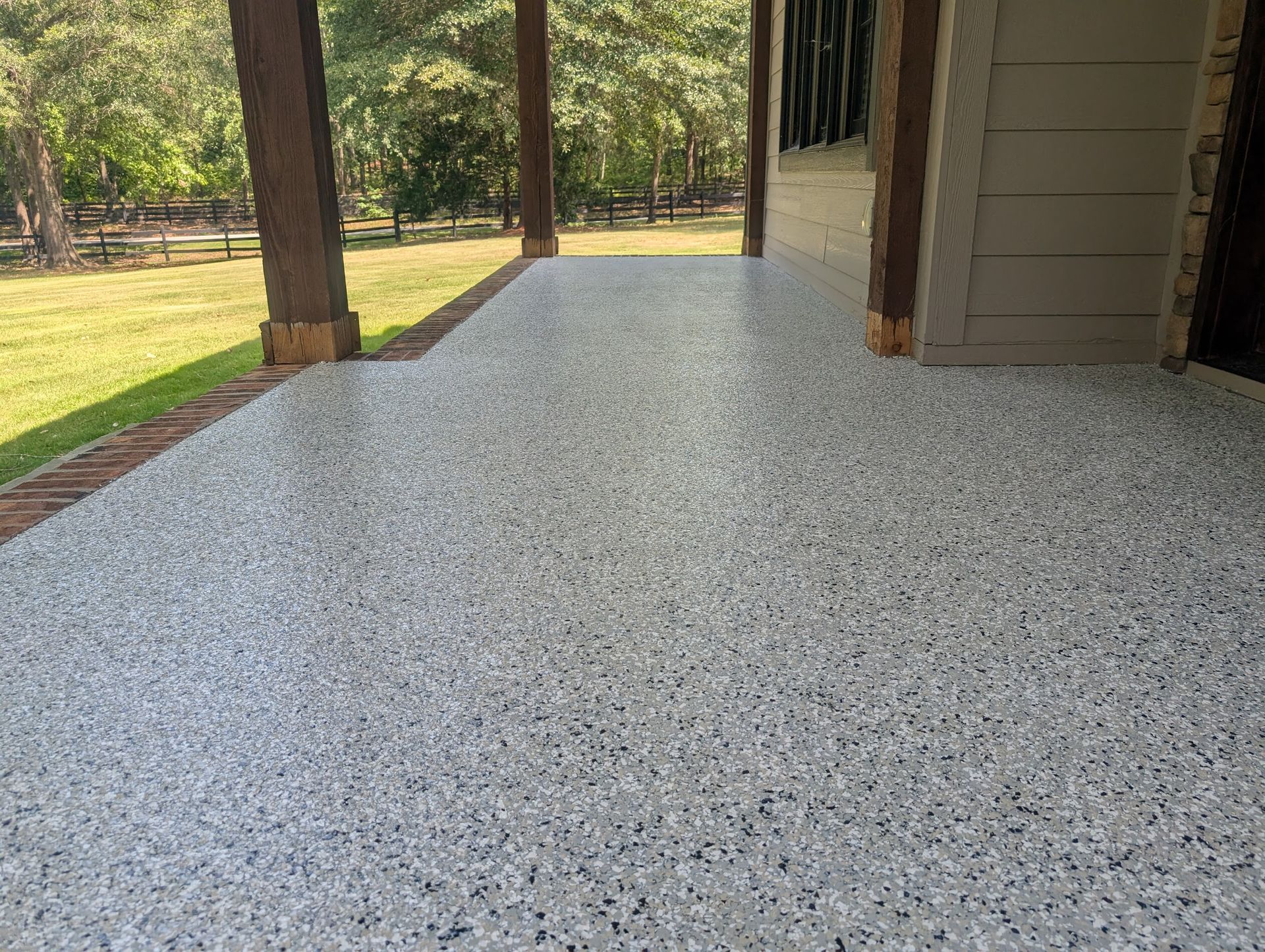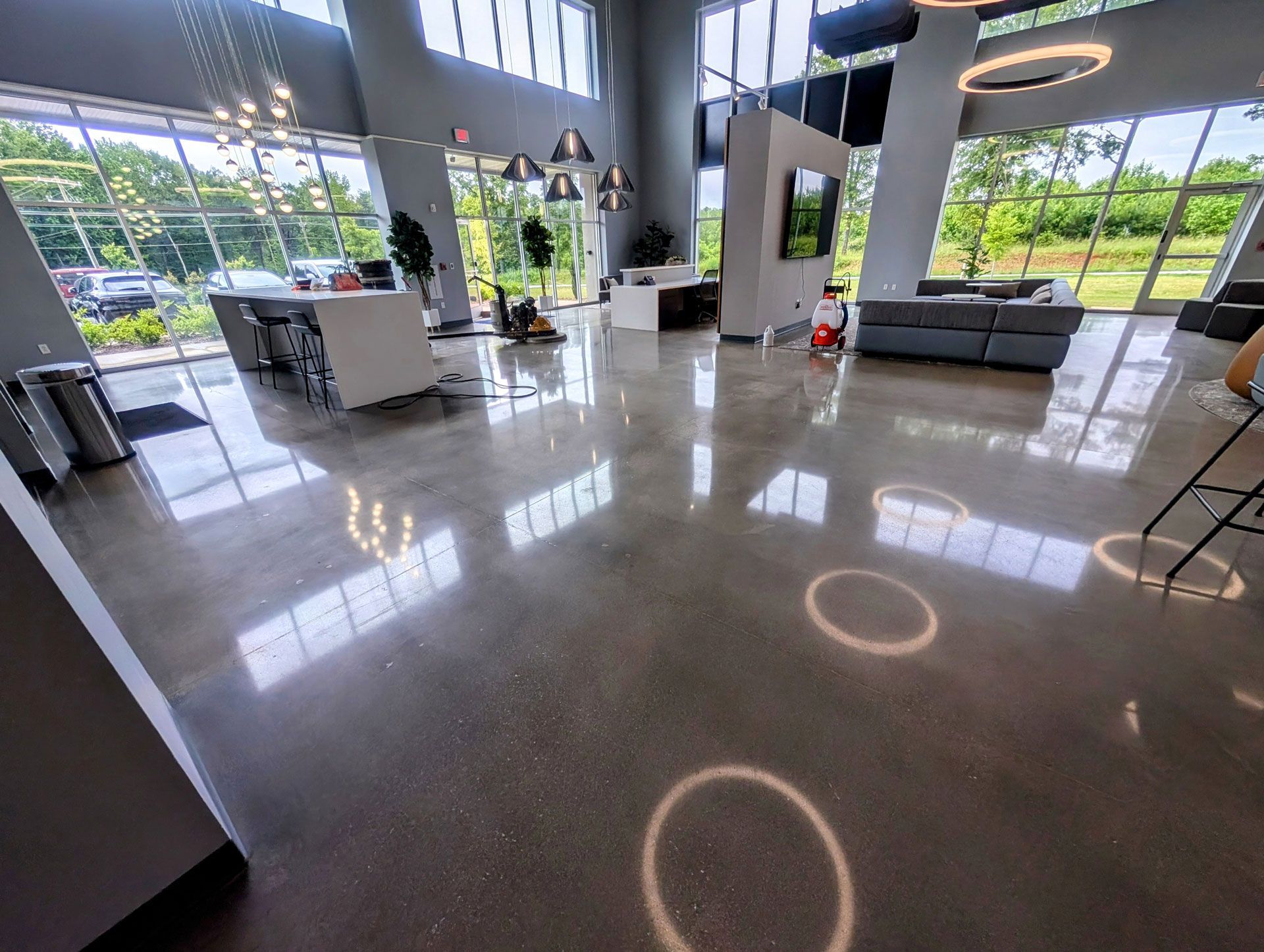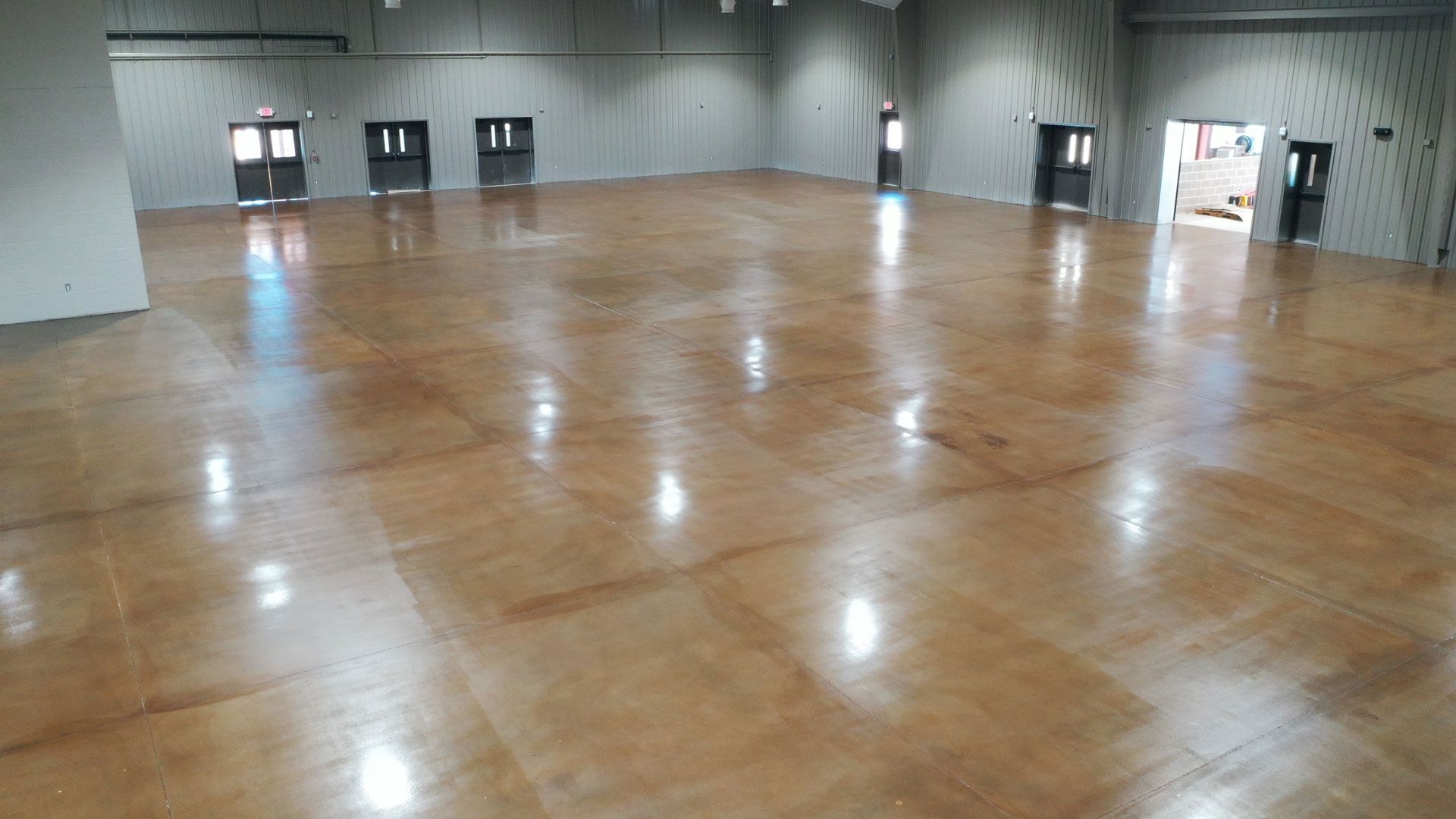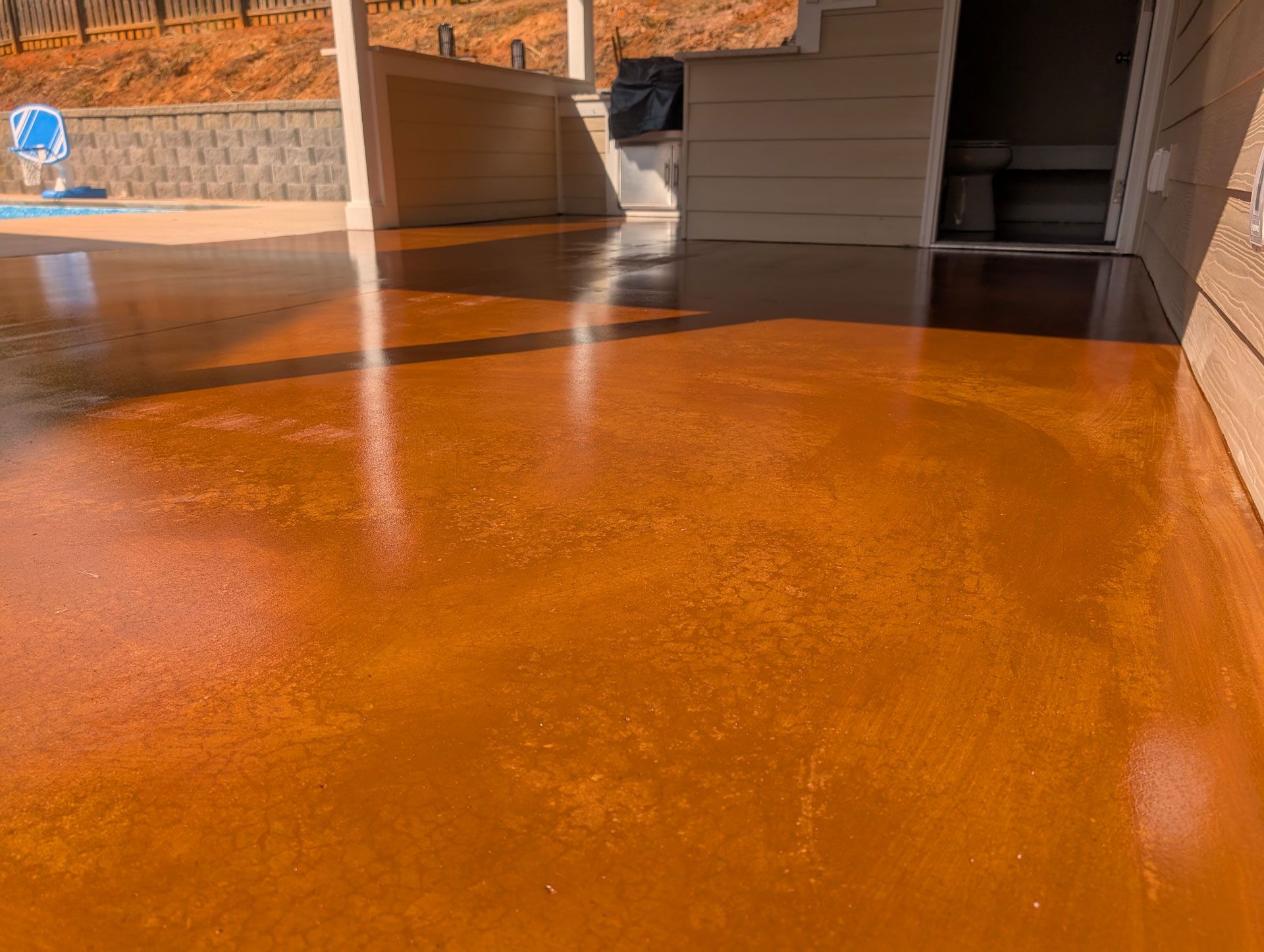Why We Grind First—And Why Others Don’t
Ever wonder why some concrete projects look flawless while others crack, stain, or fail just months after installation? It often comes down to one critical step most people overlook: surface grinding. Before we coat, seal, or stain, we always grind the concrete first. Why? Because skipping this step is one of the fastest ways to ruin an otherwise great job.
Grinding isn’t just about aesthetics—it preps the surface so everything else holds up. Still, a lot of contractors skip it to save time and cut costs. The result? Peeling, flaking, and premature failure. If you want a clean, long-lasting finish that performs as good as it looks, grinding isn’t optional. It’s essential.
Let’s break down why we grind first—and why skipping it is a risk you don’t want to take.
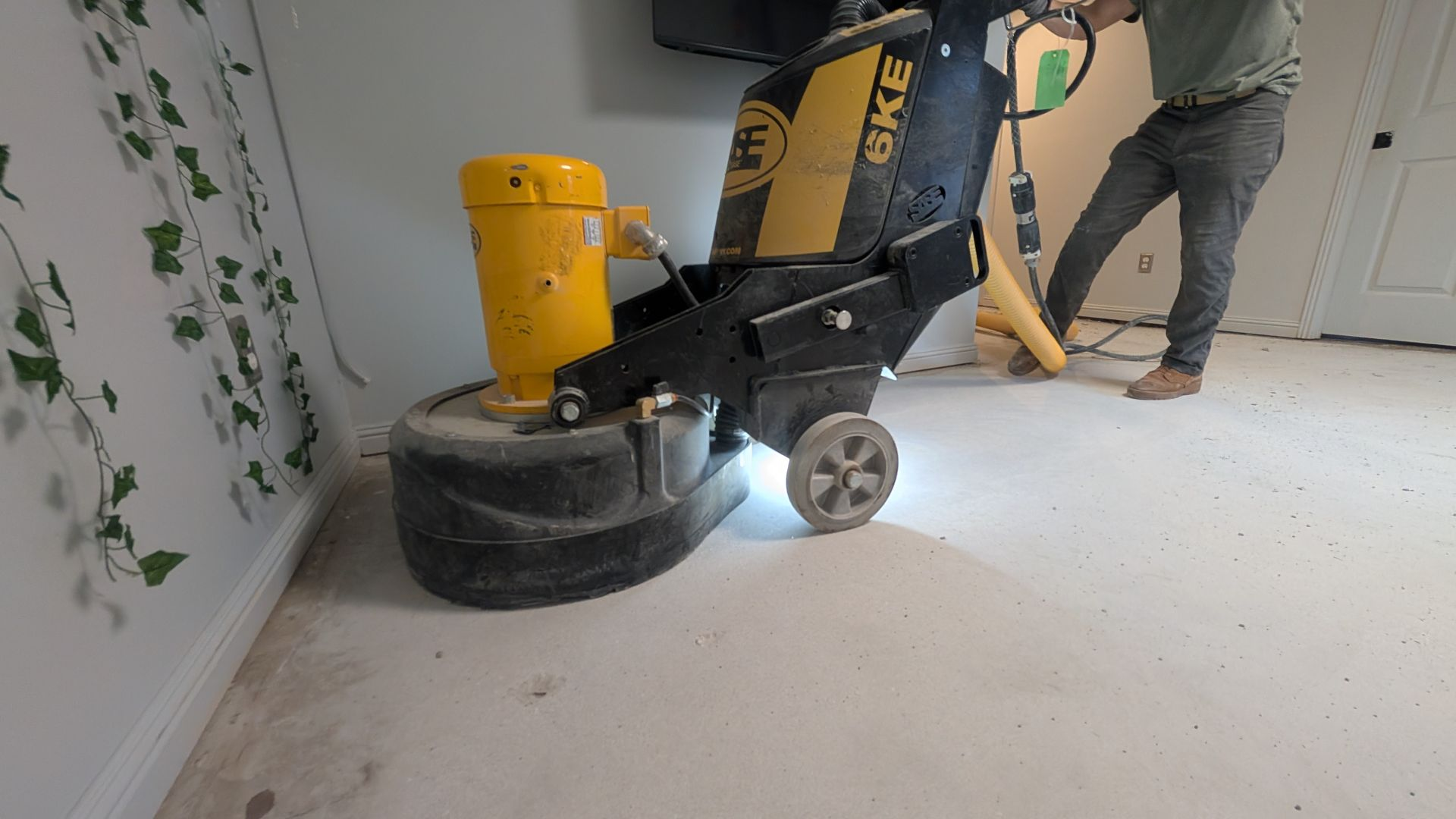
What Is Concrete Grinding?
Concrete grinding is the process of using specialized equipment to smooth out, level, and prep a concrete surface. This isn’t cosmetic—it removes surface contaminants like dirt, oil, glue, old coatings, and uneven textures. It also opens up the pores of the concrete so that sealers, stains, and coatings bond properly.
Grinding may sound technical, but think of it as brushing your teeth before putting on a whitening strip. If the surface isn’t clean and prepped, the final result won’t last or look as good.
Why We Grind First
1. Proper Adhesion and Bonding
Coatings and overlays must bond to the surface to last. Grinding exposes the pores in concrete, allowing materials like epoxy, sealants, and stains to fully absorb and cure evenly. Without grinding, coatings sit on top of the surface, which makes them prone to peeling, flaking, or bubbling.
2. Surface Smoothing and Leveling
Concrete surfaces often have imperfections—bumps, ridges, old paint, or glue residue. Grinding creates a clean slate that ensures your finish looks smooth and even. Whether we’re installing polished concrete, a decorative overlay, or a stained finish, grinding sets the stage.
3. Moisture Control
Moisture trapped in unprepared concrete can cause coatings to fail over time. Grinding opens the surface and allows for better moisture evaporation. This helps prevent future issues like discoloration, delamination, and cracking.
4. Increased Durability and Longevity
When coatings bond properly, they last longer. That means fewer callbacks, fewer repairs, and a surface that stands up to Greenville’s weather and heavy foot traffic.
5. Cleaner, More Professional Results
You’ll notice the difference immediately. A properly ground surface produces sharper finishes, crisper edges, and an overall cleaner look. No uneven patches, no blotchy stains, no visible seams.
Why Other Contractors Skip This Step
It boils down to two things: time and cost.
Grinding takes effort, requires commercial-grade tools, and adds labor. Many contractors avoid it to offer lower bids or complete jobs faster. Unfortunately, the client ends up paying more later when the surface fails, and repairs or rework are needed.
Some rely on shortcuts like acid etching or pressure washing instead. These may clean the surface, but they don’t create the same texture and absorption that grinding provides.
When Grinding Is Essential
We recommend grinding before nearly every coating, stain, or polish job. It’s not just about appearances—it’s about ensuring performance and longevity. Here’s why grinding is essential in these applications:
- Stained Concrete Floors: Stains need to absorb into the concrete to produce deep, lasting color. Grinding opens the pores of the concrete and clears away debris, allowing the stain to soak in evenly without flaking.
- Epoxy Coatings: Epoxy needs a textured surface to form a strong bond. Grinding creates the right surface profile so the resin doesn’t lift, bubble, or peel with time.
- Garage Floors: With constant pressure from tires, heavy equipment, and storage, garage coatings are vulnerable to delamination. Grinding first ensures the surface is tough enough to handle it all.
- Retail or Showroom Spaces: In high-visibility, high-traffic environments, presentation matters. Grinding creates a smooth, clean base that supports flawless finishes and long-term durability.
- Patios and Outdoor Surfaces: Greenville’s weather is harsh on concrete. Grinding helps sealers and coatings penetrate deeply, making them more resilient to sun, moisture, and wear.
The Long-Term Benefits of Grinding First
Investing in grinding upfront pays off over time in more ways than one:
- Fewer Repairs: When finishes don’t adhere properly, they fail fast. Grinding prevents early flaking and surface failures that lead to expensive repairs.
- Stronger Finishes: A well-prepped surface enhances adhesion, letting your coatings or stains perform the way they were designed to—durable, even, and long-lasting.
- Improved Curb Appeal: Grinding removes blemishes, levels uneven textures, and ensures the final finish is sleek, consistent, and visually appealing.
- Higher Property Value: Quality concrete work speaks volumes to future buyers or tenants. Grinding ensures a strong, attractive finish that adds long-term value to your space.
Our Grinding Process: What You Can Expect
Here’s what grinding involves:
- Inspection and Assessment – We evaluate the condition of your existing concrete, looking for cracks, stains, or surface irregularities.
- Surface Cleaning – Any debris, oil, or adhesives are removed.
- Grinding Begins – We use diamond grinder equipment to remove a precise layer of the surface, based on the needs of your project.
- Dust Control – Our grinders are hooked to industrial vacuums to minimize dust.
- Moisture Testing (if needed) – For sensitive applications like indoor overlays, we test moisture levels to ensure long-term results.
Work With Greenville’s Trusted Concrete Experts
Don’t settle for shortcuts. Grinding first ensures every job meets high standards of quality and durability. It’s how you protect your investment and guarantee results that last.
Call
Zachary Daniel Concrete today to schedule a consultation and see the difference that proper prep makes.
Frequently Asked Questions
Is grinding always necessary before coating concrete?
In most cases, yes. It ensures the surface is clean, level, and ready for strong adhesion.
Does grinding damage the concrete?
No. It removes only the top layer and improves the surface for finishing.
Can I grind concrete myself?
For best results, it's recommended to hire professionals. Grinding requires commercial-grade equipment and experience.
How long does the grinding process take?
How long does the grinding process take?
It depends on the size of the area and the condition of the concrete, but most residential jobs take 1–2 days.
Will grinding create a lot of dust?
Our process uses vacuum systems to capture dust, keeping the job site clean and safe.
